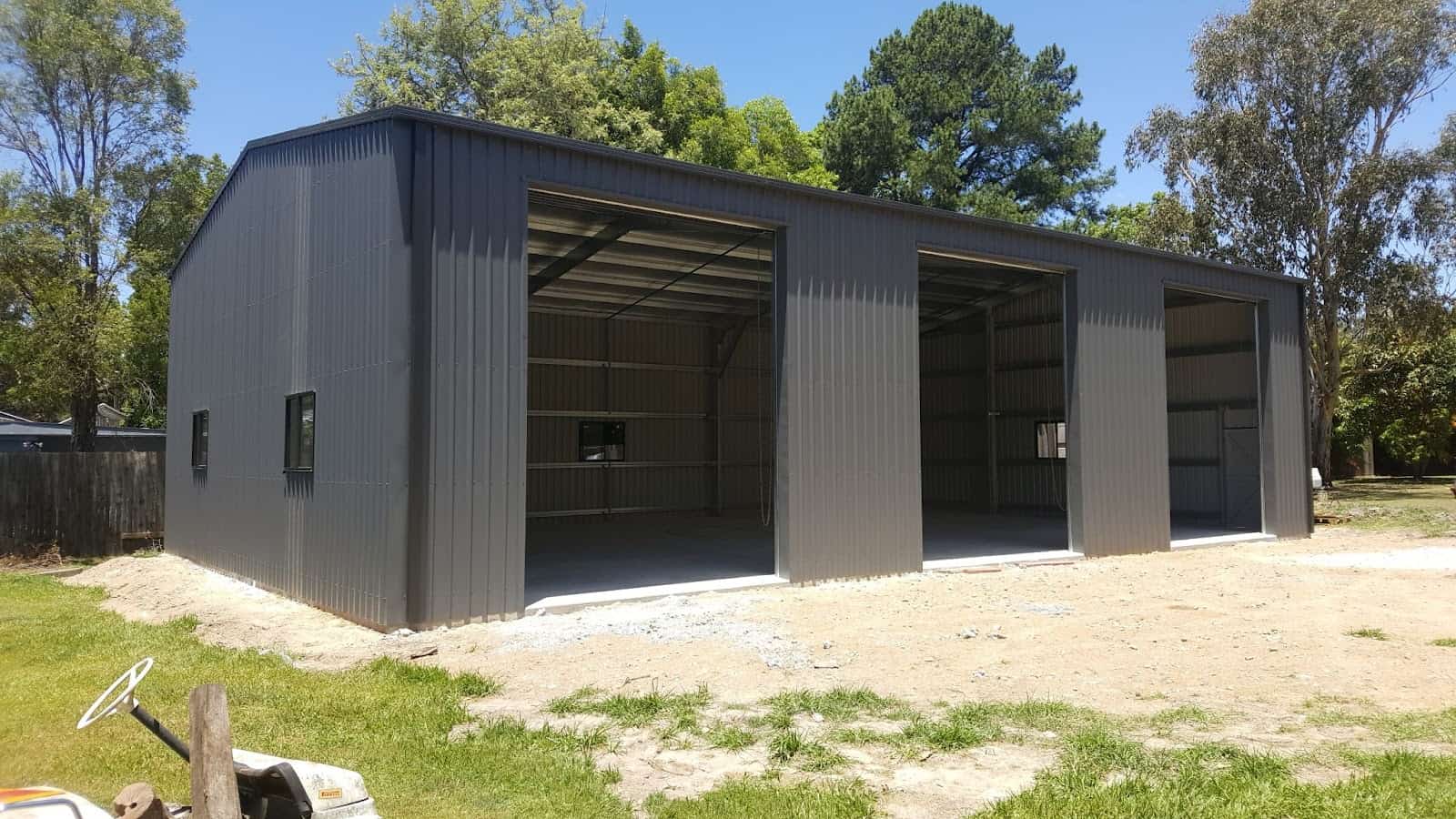For shed designers, retailers, and builders, accurately estimating the cost of a shed project is crucial for running your business successfully. Getting those shed cost estimations right is just as important for the end customer as it is for the shed retailer or builder.
In this article, we’ll cover:
- The basics of estimating the cost of a new shed build
- What factors play into a final shed project cost
- How you can effectively budget and manage your shed project
- A guide to understanding price per metre cost for sheds
- How to keep your shed project on budget
- The software that will make your life easier when it comes to shed project budgets
Whether you’re a shed retailer looking into how much a shed costs and how to accurately estimate the cost of a shed, or a shed customer doing your research, this guide is designed to help with everything to do with sheds and cost planning/budgeting.
Shed cost planning for builders: a step-by-step guide
First, let’s take a look at the big-picture things you need to consider when you look at estimating the cost of a shed project.
Here’s what goes into the final costs of any shed project — whether it’s a garden shed, an agricultural shed, an industrial shed, or a specialty shed (boat shed, shed room, man cave, she shed etc).
Shed cost breakdown: the things that determine how much a shed costs
The key things that make an impact on a shed project’s cost include:
- The shed type and design
- The complexity or uniqueness of the shed project
- Steel costs
- The size of the shed
- The shed’s intended use
- Custom features and special requirements
- Permits and approvals
- Slab costs
- Shed construction/erection and labour costs
- Unexpected costs and delays
- Additional costs
Let’s take a closer look at each of those.
The shed type and shed design
The complexity of a shed’s design directly impacts its cost. More intricate designs require additional logistics, design and engineering input, increasing the overall expense.
The complexity or uniqueness of the shed project
While in theory, every shed customer in Australia would probably love to have the ultimate shed in their backyard, not every shed customer is going to love the price tag that comes with all the bells and whistles.
It sounds simple but is important to point out: the complexity, uniqueness and/or extravagance of the shed are of course going to play a part in the costs. Sure, you can have a bunch of amazing features and upgrades added to your shed project — but it’s important to look at how much each of those optional extras are going to add up, and figure if that’s going to blow the budget for the project or not.
Here’s what you’ll need to remember:
- Customisation comes at an extra cost
- Unique, one-of-a-kind sheds will cost extra (we at Quotec can help you out if you need a custom shed design done up for a special, unique, or extraordinary shed).
Why do custom, or unique sheds cost extra? They need to be completely designed from scratch, that design has to be engineered, specced up, and of course, needs to meet compliance requirements.
It’s a good idea to consider the purpose and functionality of the shed to strike a balance between aesthetics, practicality, and cost when planning the costs for your shed project.
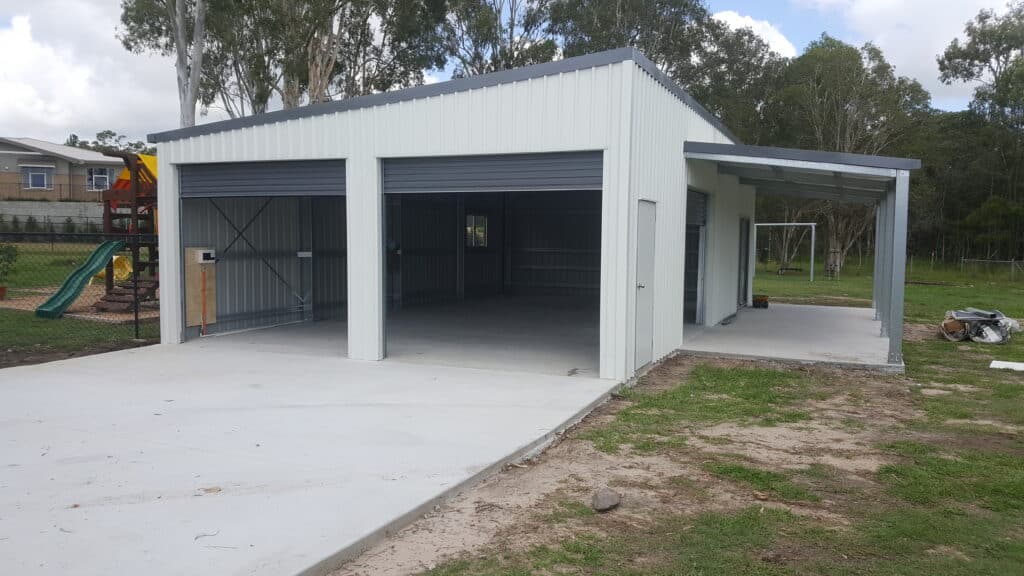
Steel costs
Steel for sheds varies in price, depending on the exact steel and the supplier you choose, as well as those suppliers’ own supply chain and delivery costs.
Steel is the gold standard in Australian sheds, thanks to its durability and cost-effectiveness. And of course, Australian steel is the best.
But, even when comparing Australian steel to Australian steel, the cost can vary depending on your supplier relationships, their prices, availability, delivery times, minimum and maximum order amounts, terms of purchase, fabrication costs, and more. (We’ve got some good hook ups for you though if you’re a shed retailer looking for an all-round solution — we’ll cover that later).
The size of the shed
The size of the shed significantly influences the material quantity, labour needed, and the size of the foundation. Larger sheds require more resources and time to construct, thereby increasing costs.
The shed’s intended use
The intended use of the shed is important to clarify before quoting up a price, as the way the shed will be used by the end-customer is going to dictate some of the design, construction and materials requirements for the shed to be fully functional in the way they intend to use it.
For example, for a shed to be passed as a ‘liveable dwelling’ it needs to meet a lot more requirements than a storage shed does — and getting it to those standards is going to need more features added, and will also cost more.
Custom features and special requirements
Custom sheds, with unique designs or purposes, involve additional design and engineering work, and may even require special materials and construction techniques. These factors will 9 times out of 10 contribute to a higher cost.
For example, if a shed needs advanced electrical work or features such as air conditioning (like in the case of a liveable dwelling, and many man caves, art sheds and she sheds), the cost of the overall shed project will go up.
That will all need to be factored into the plan and the budget at the beginning.
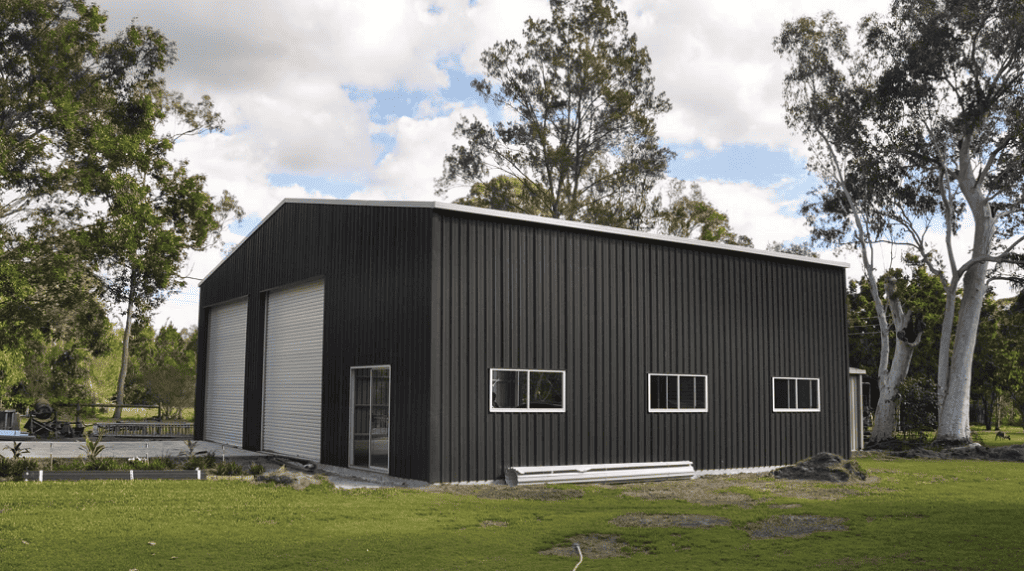
Permits and approvals
The cost of obtaining necessary permits and approvals for your shed project can vary — depending where you are in Australia and often the type of shed and its intended use.
It’s important to check what permits are required for your project, and how much these cost in your local area, before you finalise your project budget — because these fees can contribute significantly to the project’s overall cost (and timeframe).
Slab costs
Don’t forget to factor in the cost of the slab — the slab cost will vary depending on the concreter’s rates, and the shed size and scope (which will affect the size of the slab needed).
The slab costs may also be increased if there are any access issues or complications for access to the site, and any other delays or special steps needed unique to your project.
Shed construction/erection and labour costs
Whether you’re erecting the shed or you or the customer are engaging a contractor to do so, the labour costs will need to be factored into the overall costs.
Some retailers/builders will wear that cost and work it into their quotes. It’s important to figure out who is paying for any labour involved, whether it’s already included in prices you’ve been quoted, and how much it might be.
When you’re looking at labour costs for your shed project, don’t forget to also consider any specialised contractors like electricians and plumbing, that may or may not be needed (depending on the shed’s features and specifics).
How much labour costs for each service/trade, as well as the cost and labour power needed for the shed installation, can vary by location and the complexity of the shed.
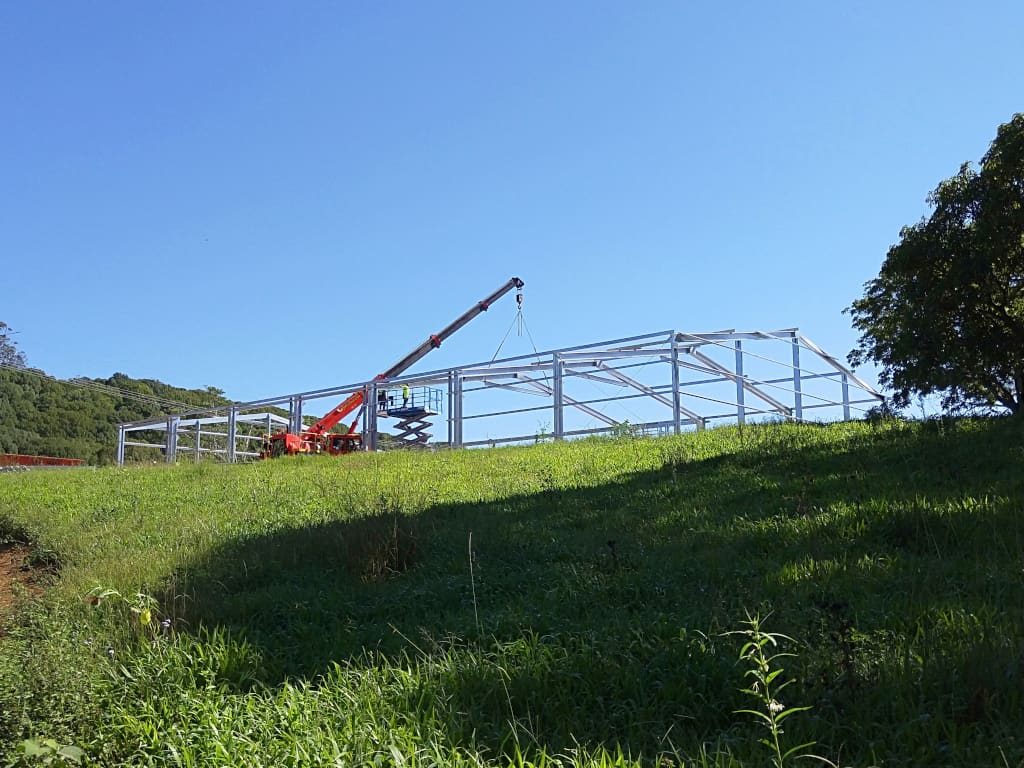
Unexpected costs and delays
In shed projects, like anything to do with construction and upgrades, unexpected costs and delays can happen.
It’s a good idea to take a look at what unexpected costs and delays could happen for your project, and allocate a contingency budget for unforeseen expenses and delays. It’s also important to find out who is up for covering the cost of any unforeseen costs and delays that may come up for the project.
Additional costs: other shed costs you might come across, depending on your project’s specifics
Wind region and location
Shed costs can differ based on the wind region and the specific location of the building site. These factors influence the engineering and material requirements, affecting the overall cost. When you estimate the cost of your shed project, be sure to make sure you’re calculating your budget based on the correct location.
Foundation and site preparation
Before your shed gets erected at the final site, the site needs to be prepared. This includes not just the concrete slab, but also any levelling needed and any other site preparation.
How much would that be, you ask? The cost of the concrete foundation and site preparation varies depending on the location and condition of the building site. The best way to find out is to contact your concrete contractor/supplier, or whoever in your shed project is in charge of making that part happen.
Delivery costs
Depending on your supplier and your agreements with them, you may need to pay for delivery of your materials onto your shed site once they’re ready. These of course can also vary so it’s a good idea to confirm this before finalising your shed budget (and before locking in your supplier).
Understanding the Price Per Square Meter
The Price Per Square Meter metric is a common way for shed retailers to estimate and quote the costs of different sheds based on their size.
Shed retailers often use the price per square metre as a baseline for creating quotes. This can be done as a way of pricing your sheds for your customers, or it can be done as a baseline way of estimating what any given shed project is going to cost you, based around your average or fixed rates/costs and current supplier relationships.
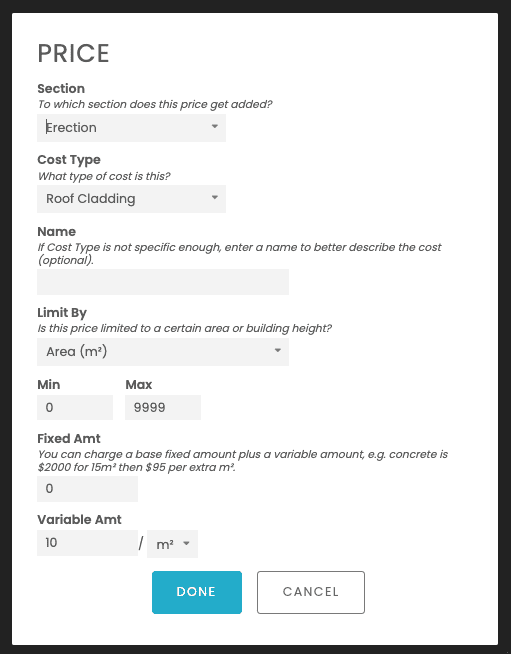
For shed retailers creating a price per square metre quite, the cost per square metre should include:
- The cost of materials,
- Labour,
- Delivery, and any other overheads
- A fair and reasonable profit margin
- Usually a small amount added for contingency for unexpected costs.
Often, larger sheds will have a lower price per square metre due to economies of scale, while smaller, custom-designed sheds might be priced higher.
To budget for a shed using a price per square metre method, you’d simply take your general ‘price per square metre’ and multiply it by the area you want the shed to cover. It’s important to keep in mind though that while this will give you a rough estimate of the total cost, it won’t of course cover anything that’s different to ‘your standard’ in the project in question, or any unplanned costs.
The economics of sheds: how to keep your shed project on budget
In this article we’ve covered plenty of tips on keeping your shed project on budget; but here are some points we’d like to leave you a list of top tips for keeping on budget for any given shed project.
- Do your research — don’t just guestimate the costs of the different elements; make the calls and ask the questions to confirm.
- Create a plan and stick to it — a well planned shed project is much easier to keep on budget.
- Budget — allocate funds realistically, including all costs. Be sure you’ve factored everything in, and total it up to see the expected costs before you start.
- Allow room for unexpected costs — a contingency window is a budget’s best friend.
- Work on solid supplier relationships — get better deals and know your exact costs.
- Lock in prices — secure costs early to avoid increases.
- Track your spending — monitor the project expenses against the budget as you go.
- Keep in mind what’s flexible — if you need to, you can adjust non-critical elements if needed.
- Ask for advice if you need it — if you come into something unexpected or need help, get in touch with experts — like the seasoned team here at Quotec.
- Use the power of shed quoting software to quote accurately from the beginning.
- Draw on the great prices, great relationships, and already-sorted logistics of others — which brings us to Quotec…
Shed quoting software: your key to mastering shed budgeting with accurate shed cost estimates
Here at Quotec, we’re shed industry experts with over 45 years of experience in everything to do with sheds. Our leading shed software makes it easy for shed retailers, designers and builders in Australia to completely design, quote and order sheds.
If you haven’t heard about it, you can learn more about Quotec’s all-in-one solution for shed retailers here: more about Quotec Live.
Here’s what Quotec can do to help with cost estimates and budgeting:
1) Quotec’s clever calculations: Bay configuration calculation
Quotec was developed by a team of industry professionals who have years of hands-on retail and construction experience. When quoting a job, a retailer needs to have tangible information about costing readily available so he or she can be competitive in the marketplace.
This is why one of Quotec’s most loved features is its intelligent bay configuration calculator. The bay configuration calculator enables a user to design a building and then review the costs associated with that bay configuration as this directly impacts the engineering of the building.
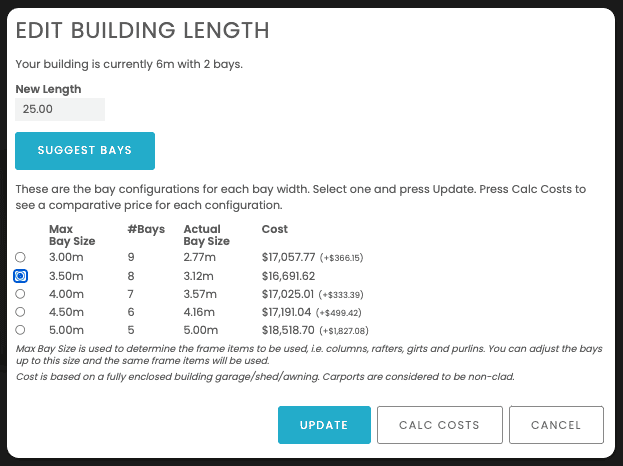
In its beautiful simplicity, a length of a building is added to the system and then a suggestion of bay configurations is offered to the user. Based on the engineering that is associated with the different bay configuration options, Quotec can then calculate and compare costs.
This gives the user the ability to see the most cost-effective engineering while ensuring that the building is still compliant and fit for purpose. Having this information readily available enables the retailer to make lighting fast decisions on costing and suitability for the end customer.
2) Include extra costs in your quote — like construction costs
Quotec lets you include extra costs in your quote automatically — for example, you can choose to add construction costs to your quote, and can even save this information for future quotes.
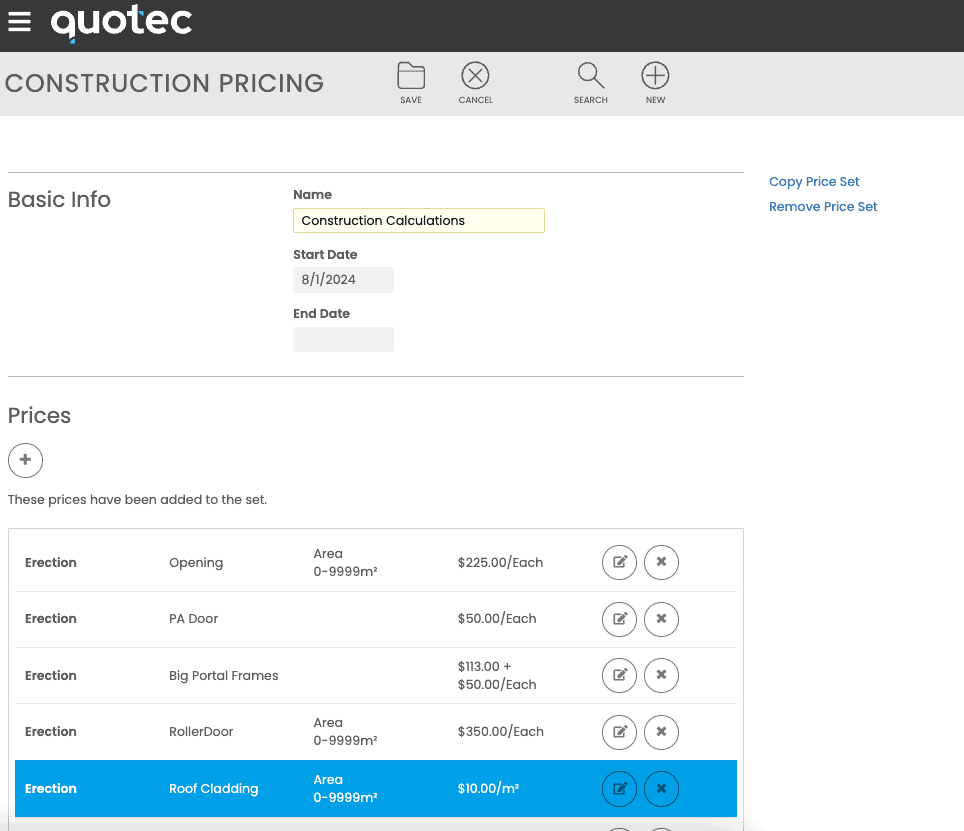
Cover letters, sign off sections, pictures and construction costs — it’s hard to explain just how easy our software makes it without showing you — but we can absolutely do so if you’d like to request a trial and book a free demonstration. (Please note, not everyone qualifies — but fill out the form with your details and we’ll be in touch).
Request trial and demo
3) You can benefit from our existing supplier relationships and prices — or use your own
When you choose Quotec, you can choose how you use it. With options to use our suppliers or use your own, you can give yourself more transparency than ever before in costs and estimates.
Quotec prices everything up for you, based on the prices that we lock in with our suppliers for all of the shed retailers that use Quotec (and who want to use our suppliers). The time you’ll save from ringing around alone is a great saving for you.
Get in touch with us to learn more about Quotec, or read more about our shed software and solutions here on the Quotec website.
